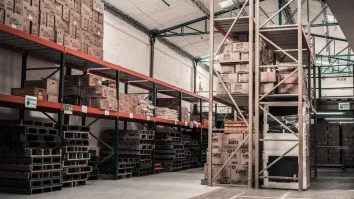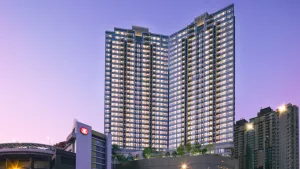Pricing gap widens between buyers and sellers in logistics facilities
Asia-Pacific investment volume dropped by 30% in the third quarter this year driven by a rise in retail and hotel acquisitions.
The pricing gaps between real estate buyers and sellers is getting wider and wider due to financial concerns, specifically in acquiring logistics facilities.
Henry Chin, CBRE Global Head of Investor Thought Leadership & Head of Research in Asia Pacific, explained that investors are looking for discounts due to concerns over finance costs and rental growth assumptions, but asset owners are reluctant to offer these discounts.
“I think investors are still very keen to buy majestic asset classes across the region. However, we do notice that the buyers and sellers pricing gap is getting wider and wider,” he said. This mismatch in expectations is creating challenges in the logistics facilities market.
With the investment volume in the Asia-Pacific region dropping by 30% in the third quarter of this year compared to 2022, Chin attributed this to a "surprising uptick" in hotel and retail investments, driven by the recovery of tourist destinations such as Japan, Australia, and Singapore, and attractive retail pricing post-COVID.
“I think hotel investors are particularly keen to look at tourist destination cities such as Japan, Australia, as well as Singapore because investors do believe tourist arrivals for those destinations are going up,” he said, “So therefore most of the investors start to find retailers are getting very attractive in terms of pricing.”
Looking ahead, Chin noted that the recovery from COVID-19, especially in mainland China, is a significant factor influencing investment trends. The region's commercial real estate market is experiencing a repricing cycle that lags behind the US and Europe. This delay has led to investor hesitation in deploying capital.
However, Chin saw substantial opportunities, particularly in office spaces, prime retail locations, and modern logistics facilities in major cities.
“If you look at the spreads, most of our markets outside Japan outside China are still in a negative territory. As a result, investors have become more hesitant to deploy the capital as of now, but we do believe there's a huge opportunity for investors to look out for,” he said.
Chin emphasized the strategic importance of Sydney and Shanghai in the office and retail sectors. He also points out that logistics facilities near major gateway cities and consumer hubs are likely to outperform the average.
In response to the 'higher for longer' interest rate environment, which is expected to persist into the first half of 2024, Chin suggested that investors are increasingly considering credit strategies. He believes that these strategies could yield better returns compared to direct investments during this cycle.
“I really want to highlight all the other credit strategies. I think given a higher for longer interest rate environment, pretty much you're going to be around for the first half of 2024. So therefore, more and more investors are considering to deploy the credit because the credit strategies will give you better returns compared to the right investments during the cycle,” he explained.



















 Advertise
Advertise




